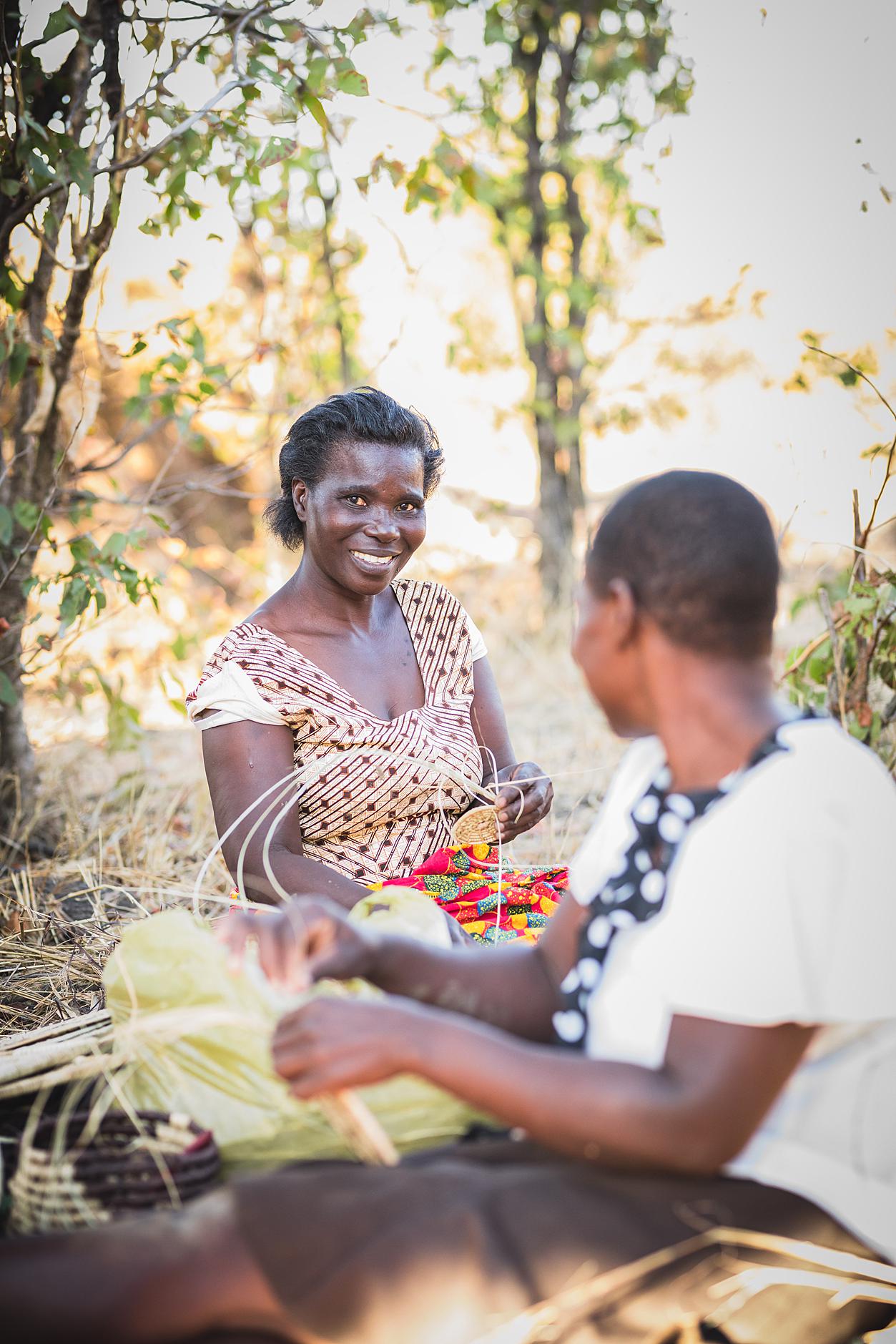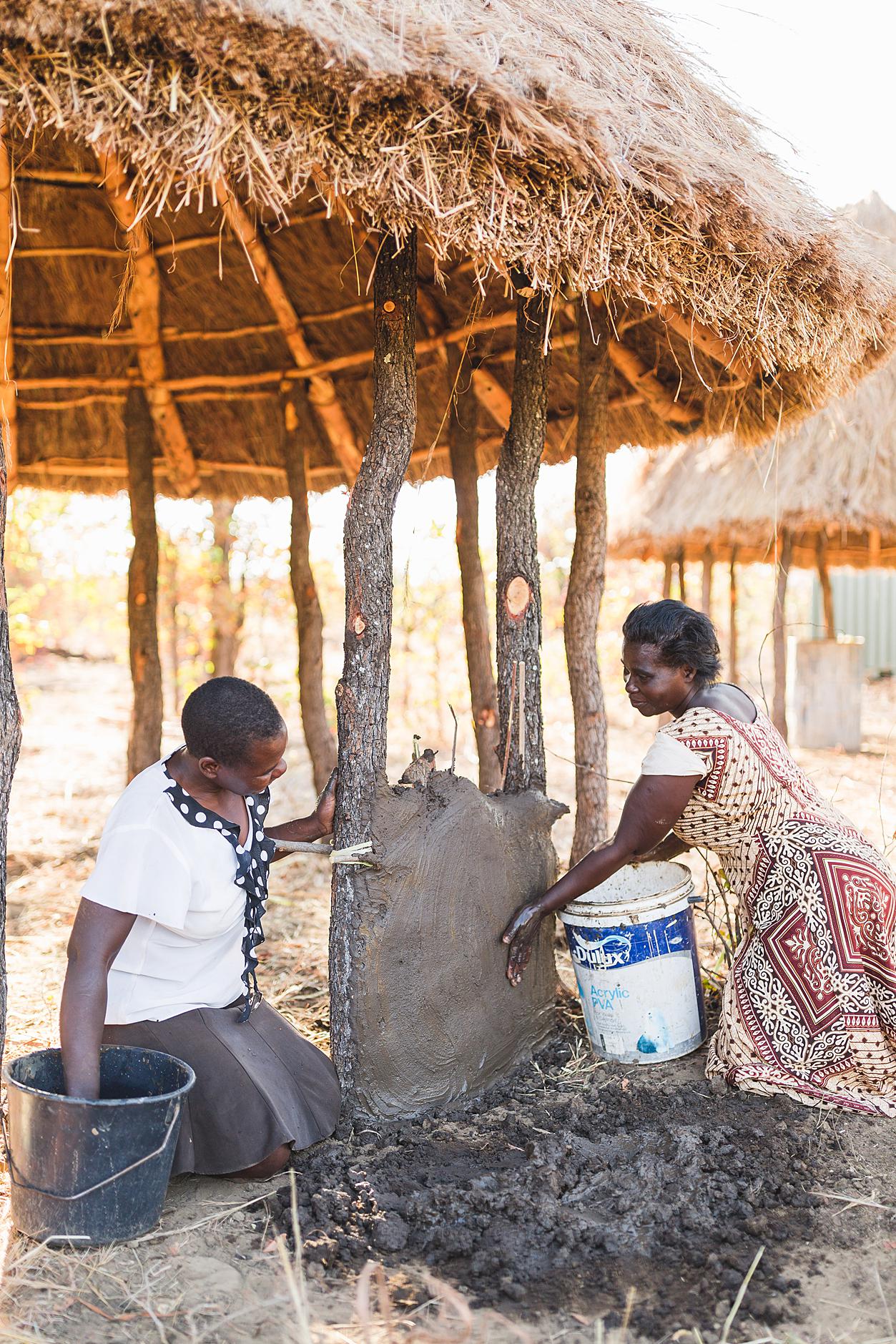The Power of Mud
The power of mud
Gonarezhou National Park and surrounding ecosystem, South-Eastern Zimbabwe
The Gonarezhou Conservation Trust is empowering women from local communities through employment, but also by helping them to showcase their culture through sustainable low-impact tourism initiatives.
Beauty Chihlangu (left) and Margaret Chauke (right) are close friends who work as camp attendants at the Gonarezhou Conservation Trust’s community tourism camp Masasani Mananga. They also helped build the chalets (manangas) guest come to stay at, using inherited traditional knowledge passed down to them from their mothers and grandmothers.
Beauty learned to make the traditional Shangaan style floors and walls when she was a child. “If my mother did our home I would take my own mud and help her. We learnt these skills at our village. If you need a basket, you can make it with your own hands. With natural resources. If you need money you can go in the field, in the bush, find those natural resources for free and make your basket and go and sell it and have your own money. We go to town in the urban areas – they use them for vegetables, some people [use them] for decoration.”
“We learnt [hospitality] at Makonde. We were trained by Mrs Davies. But this work (the walls and floors) is the work that we used to do in our homes, it’s natural for us. We see people getting excited and happy when they realise [what it is]. We are happy because all our life we didn’t think that the things we were doing – mud work, can be special for somebody. I didn’t think that I could get a job through mud, through crocheting mats and doormats.”
“We are happy because all our life we didn’t think that the things we were doing – mud work, can be special for somebody. I didn’t think that I could get a job through mud, through crocheting mats and doormats.”
[Beauty cont’] “My life before was very different because I found it difficult for me and my children, it was hard for me to get money for my children to go to school – but now it’s easy. I can pay school fees for my children and can get better food and clothes for them. I’m a single mother – I have one girl – Beyonce – she is eleven – and twins – they are seven. Their names are Despite and Delight.
“In the village they are now admiring my life. Even in my home I am now putting more effort – I’m decorating my house, making everything look smart – I’m making my home look like this Mananga one here. So my home is much more beautiful than others – some mothers are now copying from me – they are starting to paint their houses, they’re making nice floors, some come and ask me to show them how to do floors and other things… Now they see these things are important – you can get jobs through this mud. So now they are busy doing their houses and making their murals.”
Margaret Chauke (far right): “Here [at Masasani Mananga] it is amazing. There are no people talking rubbish! Its only me and Beauty. I’m very happy here. At our homes we go in the fields and sleep in the fields in the wild. There are a lot of elephants where we live so we must stay in the fields to chase them away from our crops at night. Many people say, ‘you, Margaret, you are old! How can you get that job?’ But I have worked hard [to get here]. My child has finished Form Four. His father passed away 19 years ago – through growing vegetables, cotton, through hard work I managed to put him through school.


